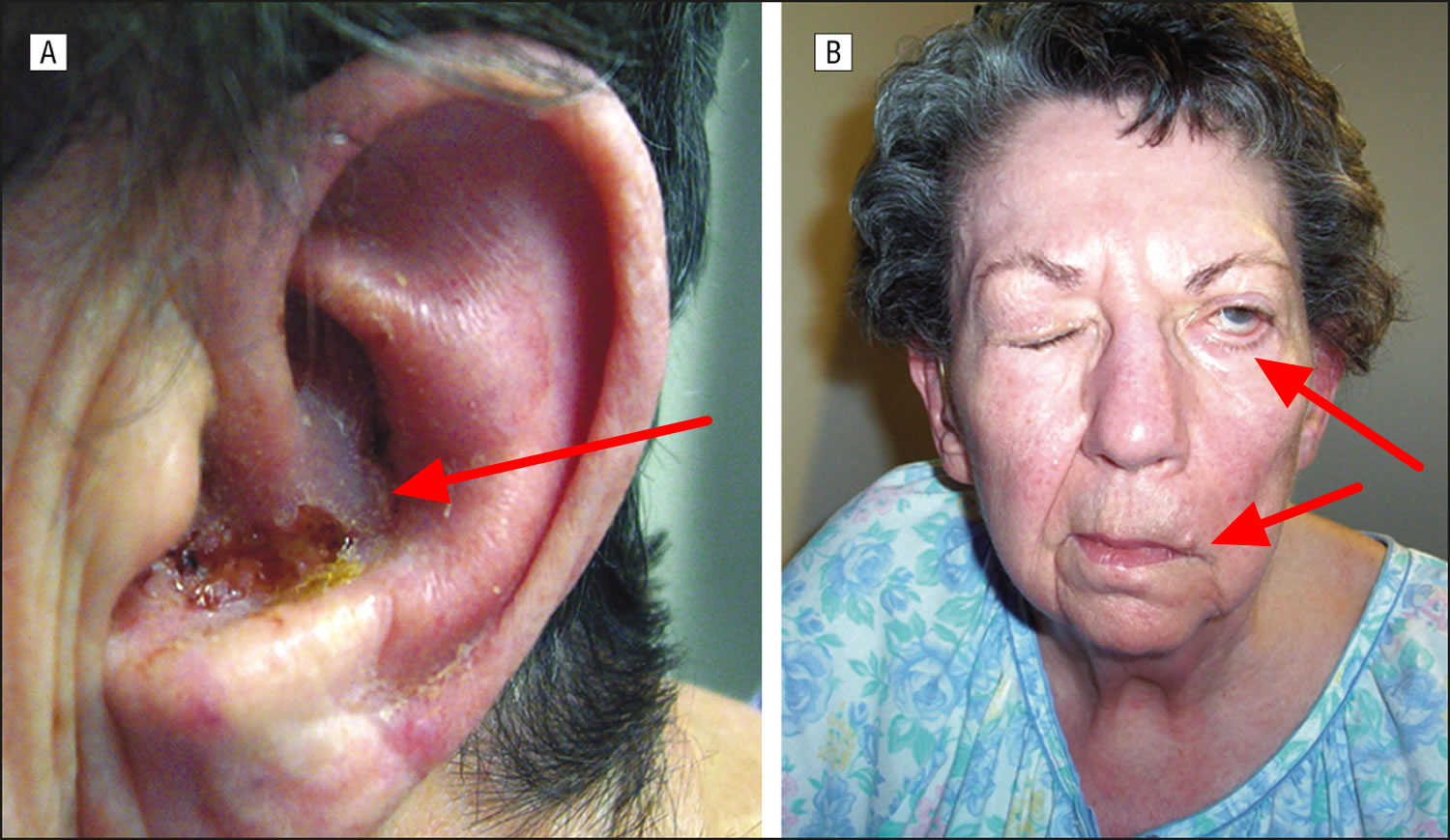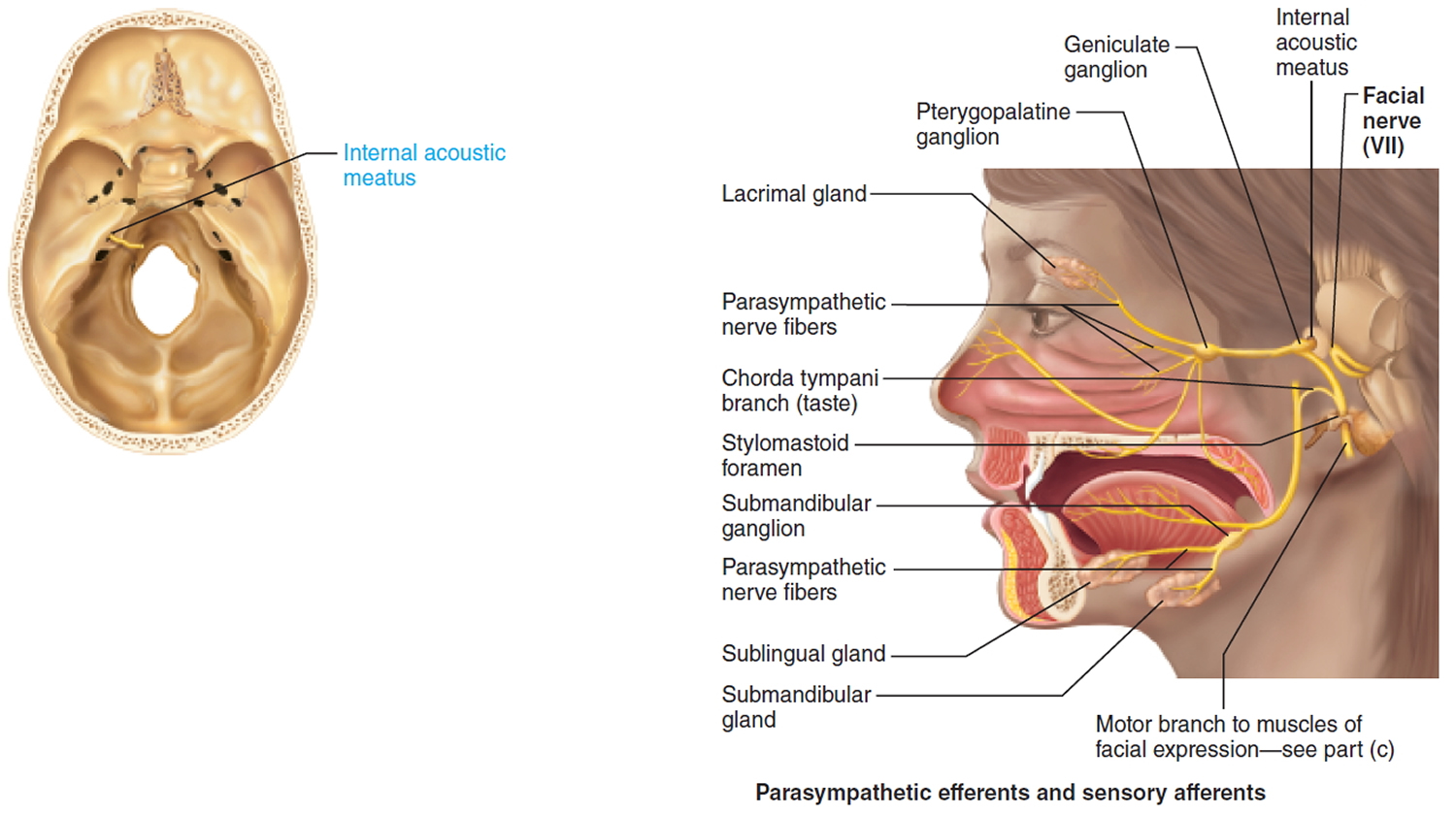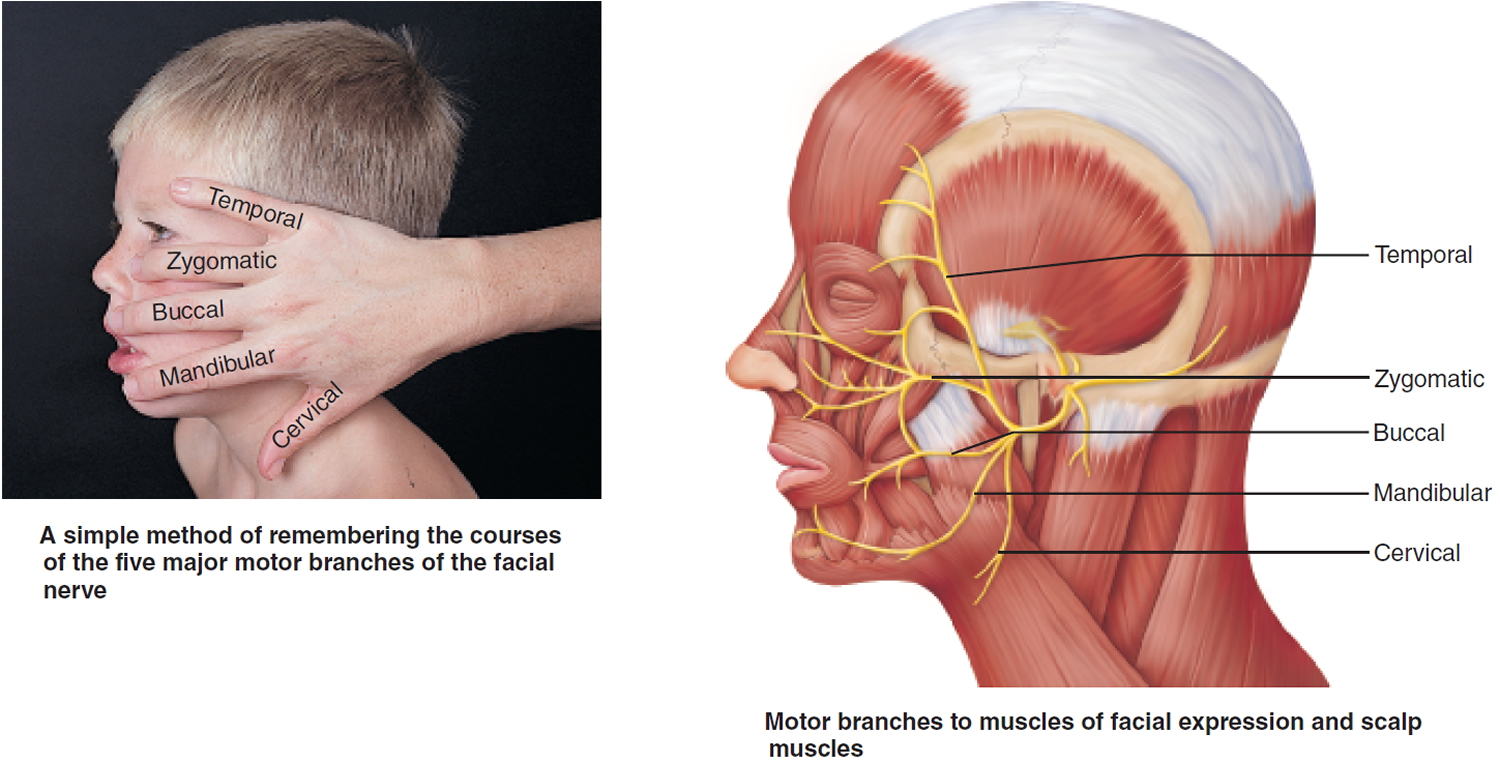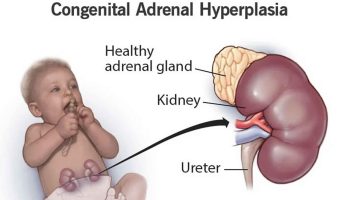What is Ramsay Hunt syndrome
Ramsay Hunt Syndrome is also called herpes zoster oticus, when a shingles outbreak affects the facial nerve near one of your ears 1. Shingles, also known as varicella-zoster virus infection (the same virus that causes chickenpox) of a nerve and the skin around it. Ramsay Hunt syndrome is caused by the same virus that causes chickenpox. After chickenpox clears, the virus lies dormant in your nerves. Years later, it may reactivate. If the virus reactivates and affects your facial nerve, the result is Ramsay Hunt syndrome. Ramsay Hunt syndrome is characterized by a painful rash around the ear, on the face, or on the mouth.
In addition to the painful shingles rash, Ramsay Hunt syndrome can cause facial paralysis and hearing loss and ear ache in the affected ear. Ramsay Hunt syndrome is a complication that can occur if shingles affects certain cranial nerves (mainly facial VII cranial nerve and vestibular VIII cranial nerve) in your head. In the US Ramsay Hunt syndrome is estimated to affect 5 in 100,000 people every year. Ramsay Hunt syndrome accounts for about 12% of all facial nerve (VII cranial nerve) palsies and in rare cases the disease is associated with other cranial nerve paralyses including the vagal nerve causing unilateral vocal cord paralysis 2.
Ramsay Hunt syndrome isn’t contagious. However, reactivation of the varicella-zoster virus can cause chickenpox in people you come in contact with if they haven’t previously had chickenpox or been vaccinated for chickenpox. The infection can be serious for people with immune system deficiencies.
Ramsay Hunt syndrome in rare cases, is associated with other cranial nerve paralyses including the vagal nerve (cranial nerve 10) causing unilateral vocal cord paralysis. The symptoms of unilateral vocal cord paralysis are mainly hoarseness, dyspnoea and dysphagia.
Figure 1. Facial nerve (Cranial nerve VII or 7)
- earache
- hearing loss
- dizziness
- the sensation that you or the environment around you is moving or spinning (vertigo)
- hearing sounds coming from inside your body, rather than an outside source (tinnitus)
- a rash around the ear
- loss of taste
- weakness (paralysis) of your face
Prompt treatment of Ramsay Hunt syndrome can reduce your risk of complications, which can include permanent facial muscle weakness and deafness.
Ramsay Hunt syndrome is usually treated with antiviral medication and corticosteroids.
The earlier treatment is started, the better the outcome. Around three-quarters of people given antiviral medication within 72 hours of the start of their symptoms usually make a complete recovery.
If treatment is delayed, only about half of those treated will recover completely.
Those who don’t make a full recovery may be left with permanent problems, such as a degree of permanent facial paralysis or hearing loss.
See your doctor if you experience facial paralysis or a shingles rash on your face. Treatment beginning within three days of the start of signs and symptoms may help prevent long-term complications.
Ramsay Hunt syndrome causes
The varicella-zoster virus that causes Ramsay Hunt syndrome is the same virus that causes chickenpox and shingles. Once you recover from chickenpox, that virus can lie dormant in your body for years — sometimes reactivating in later years to cause shingles, a painful rash with fluid-filled blisters.
Ramsay Hunt syndrome occurs in people who’ve had chickenpox. Ramsay Hunt syndrome is a shingles outbreak that affects the facial nerve near one of your ears. This leads to irritation and swelling of the nerve. It typically also causes varying degrees of one-sided facial paralysis and hearing loss.
The condition mainly affects adults. In rare cases, it is seen in children.
Risk factors for Ramsay Hunt syndrome
Anyone who has had chickenpox can develop Ramsay Hunt syndrome. But it’s more common in older adults, typically affecting people older than 60. Ramsay Hunt syndrome is rare in children.
Ramsay Hunt syndrome isn’t contagious. However, reactivation of the varicella-zoster virus can cause chickenpox in people you come in contact with if they haven’t previously had chickenpox or been vaccinated for chickenpox. The infection can be serious for people with immune system deficiencies.
Until the rash blisters scab over, avoid physical contact with:
- Anyone who’s never had chickenpox or vaccination for chickenpox
- Anyone who has a weak immune system
- Newborns
- Pregnant women
Ramsay Hunt syndrome prevention
There is no known way to prevent Ramsay Hunt syndrome, but treating it with medicine soon after symptoms develop can improve recovery.
Ramsay Hunt syndrome recovery time
If there is not much damage to the nerve, you should get better completely within a few weeks. If damage is more severe, you may not fully recover, even after several months. Generally, the prognosis of Ramsay Hunt syndrome is good. However, in some cases, hearing loss may be permanent. Vertigo may last for days or weeks. Facial paralysis may be temporary or permanent.
Overall, your chances of recovery are better if the treatment is started within 3 days after the symptoms begin. When treatment is started within this time, most people make a full recovery. If treatment is delayed for more than 3 days, there is less of a chance of complete recovery. Children are more likely to have a complete recovery than adults.
Ramsay Hunt syndrome possible complications
Complications of Ramsay Hunt syndrome may include:
- Changes in the appearance of the face (disfigurement) from loss of movement
- Change in taste
- Permanent hearing loss and facial weakness. For most people, the hearing loss and facial paralysis associated with Ramsay Hunt syndrome is temporary. However, it can become permanent for some people.
- Damage to the eye (corneal ulcers and infections), resulting in a loss of vision. The facial weakness caused by Ramsay Hunt syndrome may make it difficult for you to close your eyelid. Incomplete eyelid closure can lead to damage of the protective dome of clear tissue over the front of your eye (cornea). This damage can cause eye pain and blurred vision.
- Nerves that grow back to the wrong structures and cause abnormal reactions to a movement — for example, smiling causes the eye to close
- Persistent pain (postherpetic neuralgia). Postherpetic neuralgia is a painful condition occurs when a shingles infection damages nerve fibers. The messages sent by these nerve fibers become confused and exaggerated — causing pain that may persist long after other signs and symptoms of Ramsay Hunt syndrome have faded.
- Spasm of the face muscles or eyelids
Occasionally, the virus may spread to other nerves, or even to the brain and spinal cord. This can cause:
- Confusion
- Drowsiness
- Headaches
- Limb weakness
- Nerve pain
If these symptoms occur, a hospital stay may be needed. A spinal tap may help determine whether other areas of the nervous system have been infected.
Ramsay Hunt syndrome prevention
Children are now routinely vaccinated against chickenpox, which greatly reduces the chances of them becoming infected with the naturally occurring chickenpox virus. A shingles vaccine for people age 60 or older also is recommended.
Ramsay Hunt syndrome symptoms
Symptoms may include:
- Severe pain in the ear
- Painful rash on the eardrum, ear canal, earlobe, tongue, and roof of the mouth on the side with the affected nerve
- Hearing loss on one side
- Sensation of things spinning (vertigo)
- Ringing in your ears (tinnitus)
- A change in taste perception or loss of taste
- Dry mouth and eyes
- Weakness on one side of the face that causes difficulty closing one eye, eating (food falls out of the weak corner of the mouth), making expressions, and making fine movements of the face, as well as facial droop and paralysis on one side of the face
Usually, the rash and the facial paralysis develop at the same time. But in some cases, the rash will occur before the facial paralysis or the paralysis before the rash. Sometimes the rash never materializes.
Ramsay Hunt syndrome diagnosis
Doctors often can identify Ramsay Hunt syndrome based on medical history, a physical exam and the disorder’s distinctive signs and symptoms.
To confirm the diagnosis, your doctor might take a sample of fluid from one of the rash blisters in your ear for testing.
Tests may include:
- Blood tests for varicella-zoster virus
- Electromyography (EMG)
- Lumbar puncture (in rare cases)
- MRI of the head
- Nerve conduction (to determine the amount of damage to the facial nerve)
- Skin tests for varicella-zoster virus
Ramsay Hunt syndrome treatment
Prompt treatment of Ramsay Hunt syndrome can ease pain and decrease your risk of long-term complications.
Strong anti-inflammatory drugs called steroids (such as prednisone) are usually given. Antiviral medicines, such as acyclovir or valacyclovir may also be given.
Sometimes strong painkillers are also needed if the pain continues even with steroids. While you have weakness of the face, wear an eye patch to prevent injury to the cornea (corneal abrasion) and other damage to the eye if the eye does not close completely. Some people may use a special eye lubricant at night and artificial tears during the day to prevent the eye from drying out.
If you have dizziness, your provider can advise other medicines.
- Antiviral drugs. Medications such as acyclovir (Zovirax), famciclovir (Famvir) or valacyclovir (Valtrex) often help combat the chickenpox virus.
- Corticosteroids. A short regimen of high-dose prednisone appears to boost the effect of antiviral drugs in Ramsay Hunt syndrome.
- Anti-anxiety medications. Drugs such as diazepam (Valium) can help relieve vertigo.
- Pain relievers. The pain associated with Ramsay Hunt syndrome can be severe. Prescription pain medications may be needed.
Home remedies
The following can help reduce the discomfort of Ramsay Hunt syndrome:
- Keep areas affected by the rash clean.
- Apply cool, wet compresses to the rash to ease pain.
- Take an over-the-counter pain reliever or anti-inflammatory drug, such as ibuprofen (Advil, Motrin IB, others).
If facial weakness makes it difficult for you to close one of your eyes, take the following steps to protect your vision:
- Use moisturizing eyedrops throughout the day if your eye becomes dry.
- At night, apply ointment to the eye and tape your eyelid shut or wear an eye patch.








